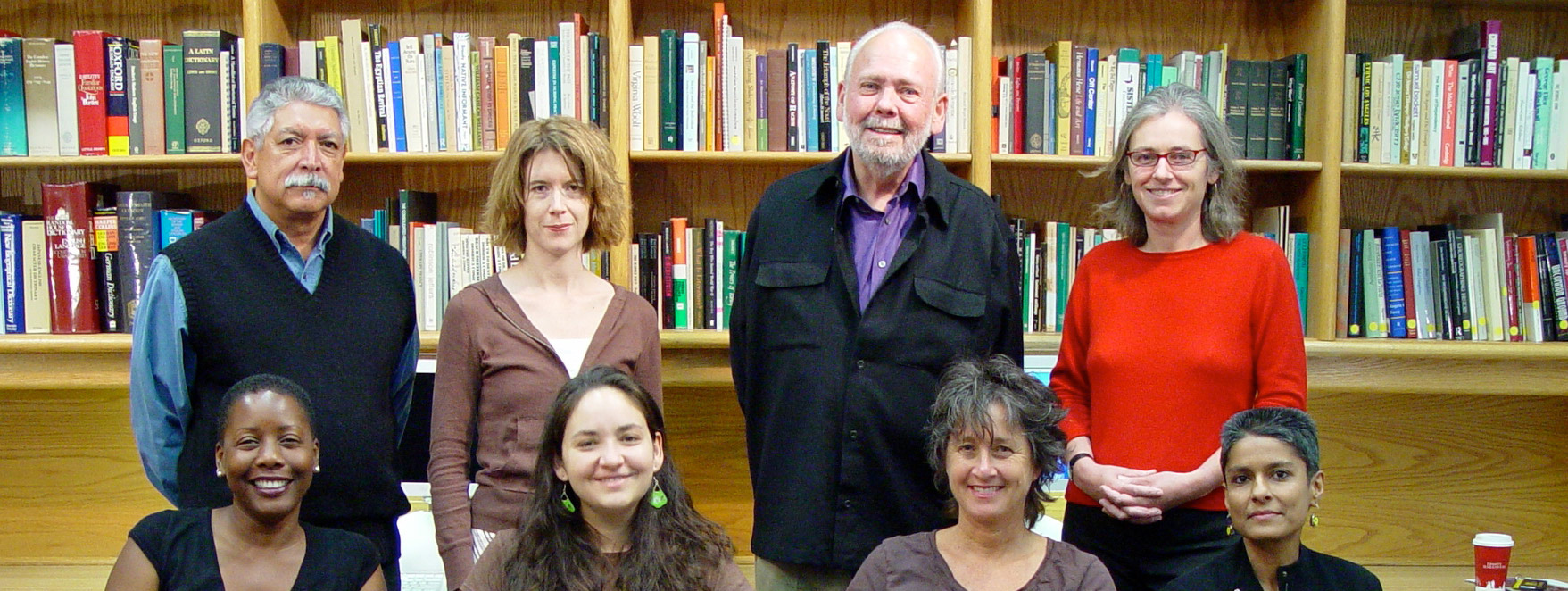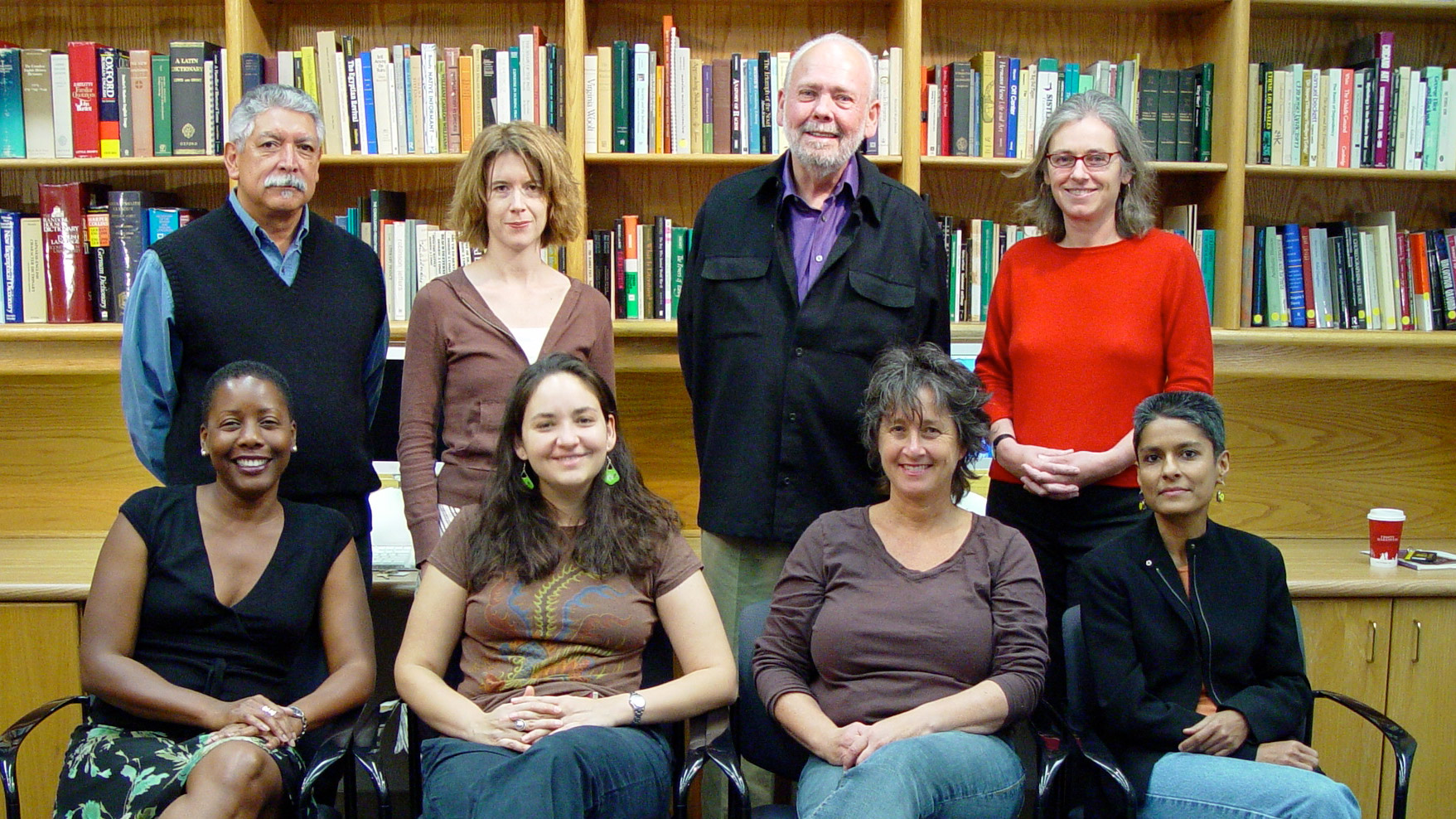Eating Cultures: Race and Food
E. Melanie DuPuis
Sociology
UC Santa Cruz
Participants
Robert Alvarez
Ethnic Studies
UC San Diego
Marie Sarita Gaytán
Sociology
UC Santa Cruz
Julie Guthman
Community Studies
UC Santa Cruz
Michael Owen Jones
World Arts and Cultures
UC Los Angeles
Kimberly Nettles
Women & Gender Studies
UC Davis
Parama Roy
English
UC Davis
Carolyn de la Pena
American Studies
UC Davis
This Residential Research Group explored ways in which analyses of eating practices can inform a broader discussion of race/whiteness and social justice. In classical social theory, “foodways” became the iconic social research practice used to understand groups notions of belonging (Mary Douglas, Claude Levi-Strauss). Classical studies of foodways examined how food, while an everyday practice, embodies the society in which it is found. How foodways became a way for one group to dominate over or exclude the other has been less explored. A few studies have focussed the issue of eating as a form of exclusion based on explicit racial nationalism (Pillsbury, 1988; Pilcher, 1998). The purpose of the research group was not to identify racist eating or food production practices but to bring the discussion to a deeper level of analysis of race and the racialization of eating. Therefore, studies of eating practices can contribute to an understanding of larger issues of social justice.
To that end, the Residential Research Group explored ways in which analyses of eating practices can inform a broader discussion of race and social justice. While the words “race” and “social justice” often occur together in political discourse, the philosophical literature on social justice seldom has direct contact with critical theories of race. This is in part due to where these different literatures “rest” in academe: theories of justice generally stem from European philosophical traditions in the humanities beginning with the Classical philosophers. Critical race theory begins by setting itself apart from that tradition, consciously setting itself the goal of looking at the margins rather than at the center, at diasporas rather than nations, and in particular questioning the ways in which “The Other” becomes characterized as outside discussions in “The Public Sphere” (Gilroy, 1993; Hall, 1997). Yet, there are some surprising parallels in the social critiques presented by both Western social justice philosophers and by critical race theorists. Specifically, both perspectives show remarkable congruence in their critiques of American politics.
Western social justice theory has been dominated for many decades by John Rawls and to a lesser extent by Ronald Dworkin. Rawls and Dworkin, despite differences, both begin their analysis of social justice by taking seriously the utilitarian critique of authoritarian moralism. Along with the utilitarians, they argue (against Plato) that the better society is one in which moral values are not pre-determined fixed ethics of the perfect life. All these philosophers—utilitarian, liberal egalitarian, and libertarian—therefore reject “perfectionism”: the defining of a good society through the discovery of a fixed set of standards for “the good life.” Perfectionism denies democratic political processes because it sets the standard ahead of time, making politics thereby irrelevant, except in the attainment of the pre-set goal.
For both social justice and critical race theory, the problem with perfectionism or whiteness is that it sets forth a pre-fixed morality for social action rather than creating a process by which social action is the product of political contest and decision-making. Critical race theory provides the additional critique that privileged groups impose a perfectionist politics on others while presenting it as the product of democratic political processes. From both critiques, a good society is one in which laws are set by inclusive democratic processes which enable everyone to participate and be represented – critical race theorists add to this the politics of recognition and respect (Fraser, 1997; Childs, 2003) in which group autonomy and identity become part of the democratic political process.
The politics of “whiteness” in critical race theory provides a not-synonymous but interesting parallel to the critique of the politics of perfection in social justice theory. The exposition of whiteness as the “unmarked category” shows how a particular set of values set by a particular racial group become represented as universal values, in other words, as perfection. Yet, the overlay of race veils the particularity of a supposedly universal ethics. While setting itself apart from Western social theory, this perspective does draw from Marxian critical theory’s critique of bourgeois ideology as claiming the universal for the benefit of a particular class, which in critical race theory gets remade as “whiteness” becoming the universal which benefits a particular racial group. Therefore, both Western social justice and critical race theory begin with a critique of the universal, which in critical theory becomes whiteness as the emblem of perfection. However, perfection is not presented as the “ideal” that others emulate but as the “unmarked category” by which other groups are judged as different from the norm (Lipsitz, 1998; Frankenburg, 1993). The politics of perfection therefore can be seen as a politics of whiteness. The Humanities Research Group therefore, brought together scholars from both critical race and Western social justice perspectives.
In Food Studies, issues of race and social justice have focused on the sphere of production, namely the use of racially segmented labor forces in agriculture. There is significantly less work on race and the consumption of food. In part, this is due to an ontological difference between those who study production—generally from a political economy standpoint—and those who study consumption, generally from a more cultural perspective (Goodman and DuPuis, 2001). A number of scholars, however, are attempting to examine food systems from a perspective that integrates consumption and production as social practices (Dixon, 2002; DuPuis, 2002). This Humanities Research Group therefore, brought together both scholars in political economy and scholars from cultural perspectives.
Works Cited
Childs, John Brown (ed.). 2003. Transcommunality: From the Politics of Conversion to the Ethics of Respect. (Philadelphia: Temple University Press).
Frankenberg, Ruth. 1993. White Women: Race Matters. (Minneapolis: University of Minnesota Press).
Fraser, Nancy. 1989. Unruly practices : power, discourse, and gender in contemporary social theory. (Minneapolis: University of Minnesota Press).
Gilroy, Paul. 1993. The Black Atlantic: Modernity and Double Consciousness. (Cambridge: Harvard University Press).
Gouveia, Lourdes and Arunas Juska 2002. Taming Nature, Taming Workers: Constructing the Separation Between Meat Consumption and Meat Production in the U.S. Sociologia Ruralis 42(4).
Hall, Stuart. 1997. “Representation, Meaning and Language,” In Stuart Hall, Representation: Cultural Representations and Signifiying Practices. (Thousand Oaks, CA: Sage).
Lipsitz, George. 1998. The Possessive Investment in Whiteness: How White People Profit from Identity Politics. (Philadelphia: Temple University Press).
Pillsbury, Richard. 1998. No foreign food : the American diet in time and place. (Boulder, CO: Westview Press).
Pilcher, Jeffrey. 1998. Que vivan los tamales! : food and the making of Mexican identity. (Albuquerque : University of New Mexico Press).


